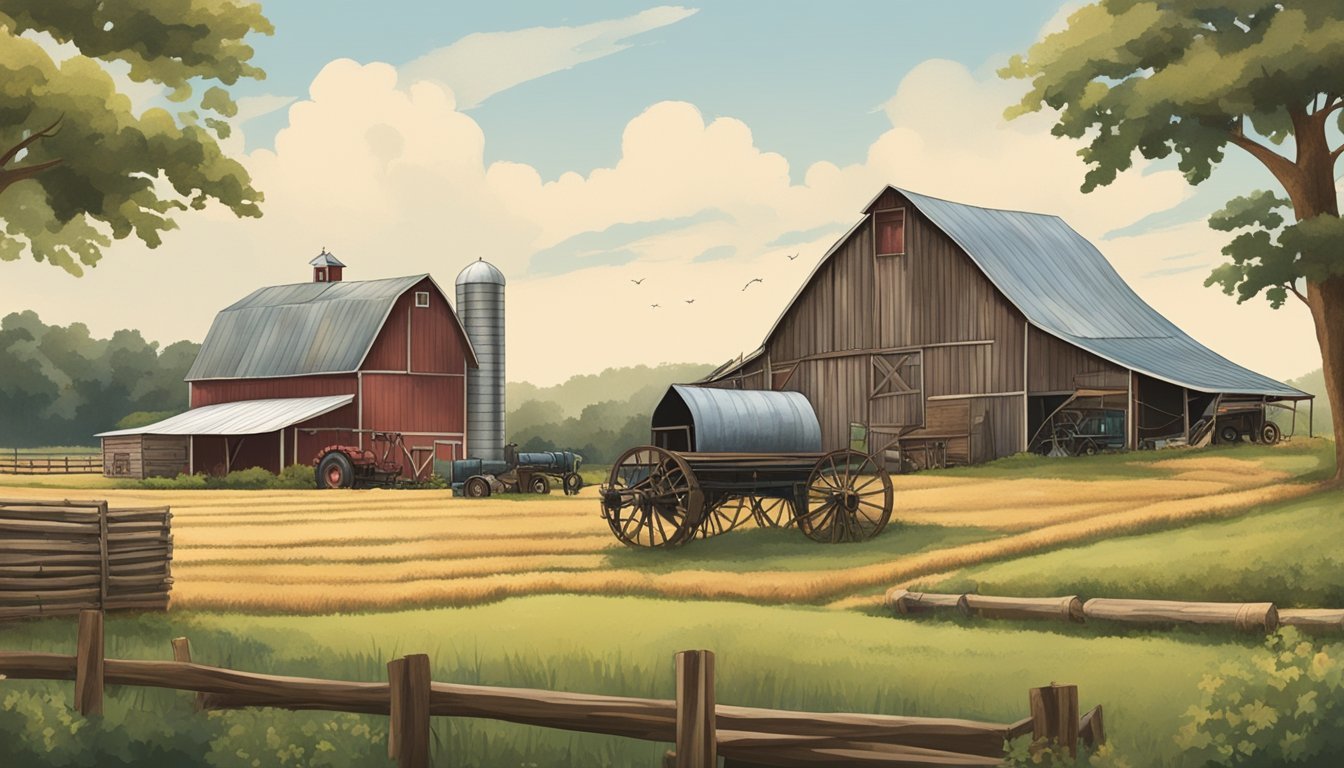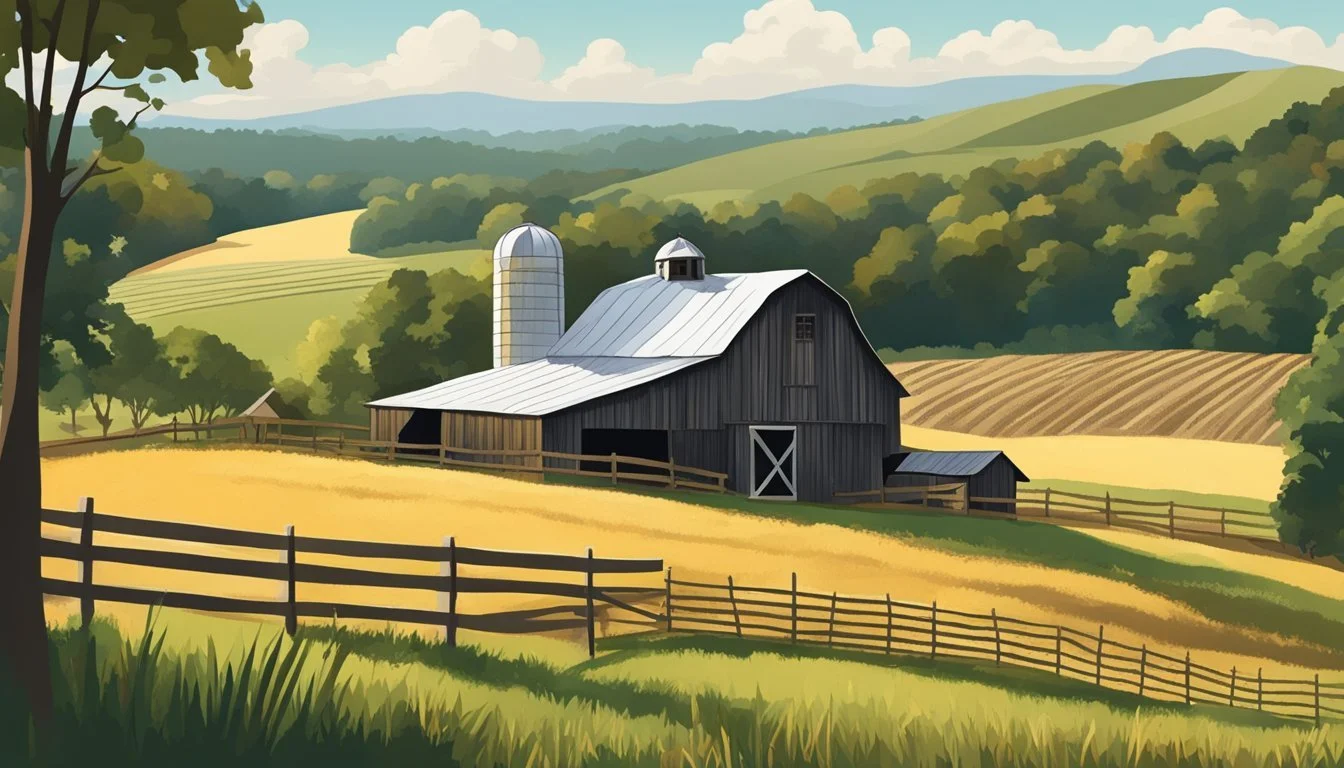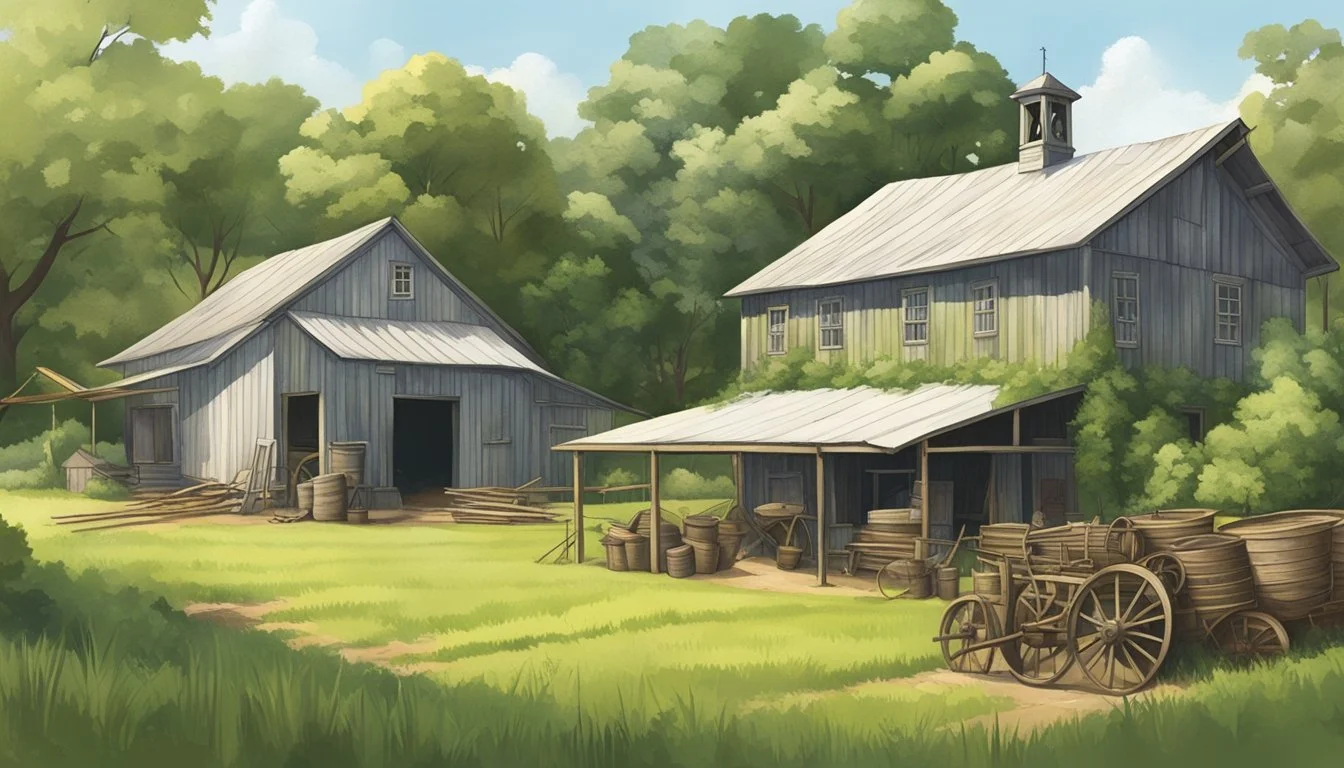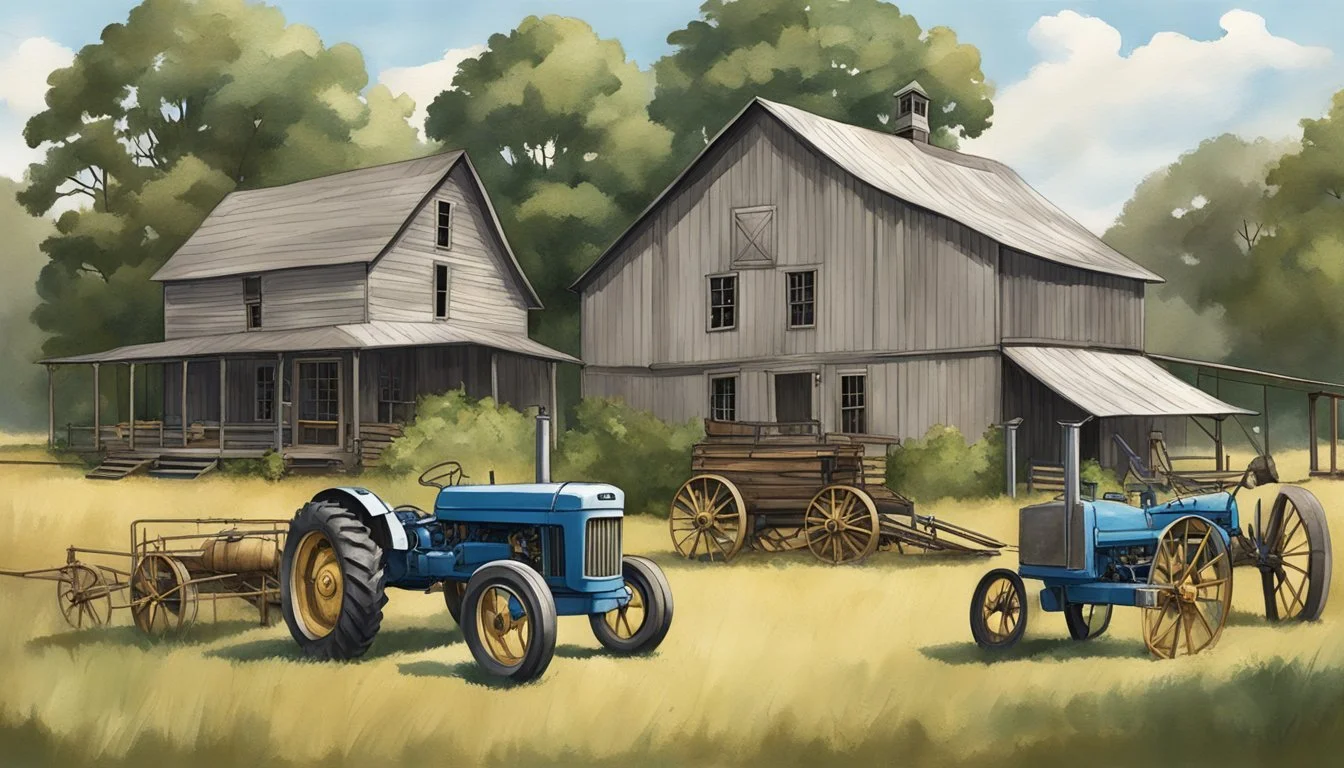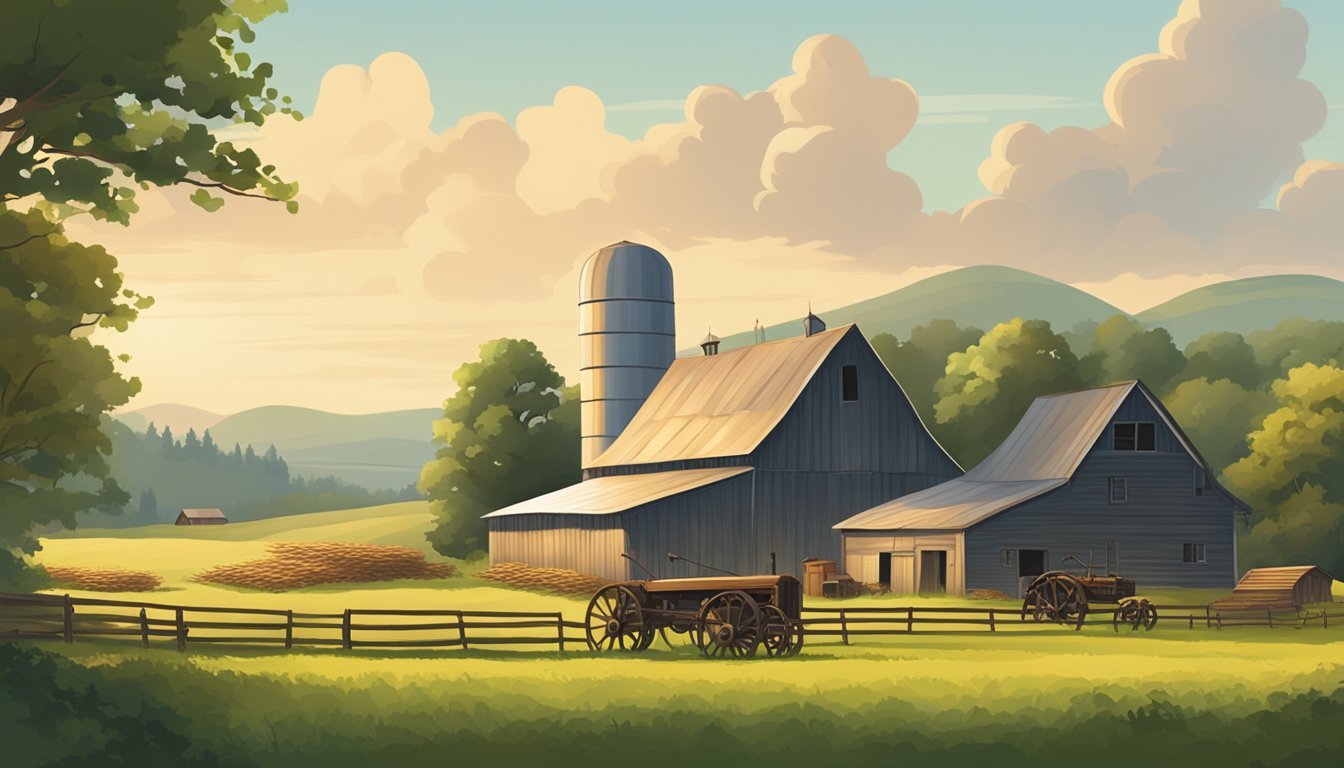Historical Farms and Agricultural Museums in Georgia
Exploring the Roots of Southern Agriculture
Georgia's agricultural history and heritage are rich and deeply ingrained in the state's identity. Museums and historical farms sprinkle the landscape, offering visitors a chance to step back in time and experience the traditions and innovations that have shaped the region. The Georgia Museum of Agriculture in Tifton, for example, presents an immersive look into the 19th-century American South, covering the cultural and agrarian lifestyles that prevailed in the Wiregrass region.
Historical farms and agricultural museums serve as critical connectors between the past and present, where stories of perseverance, innovation, and community in Georgia's agrarian past are preserved and shared. These sites, such as the living history museum encompassing a traditional 1870s farm community and the progressive farmsteads of the 1890s, offer hands-on learning experiences and insight into the rural life that once dominated the state.
Visitors can gain a comprehensive understanding of Georgia's farming evolution by exploring restored buildings, engaging with period-appropriate farming techniques, and viewing artifacts that have stood the test of time. This educational journey not only pays homage to the state's agricultural pioneers but also underscores the significance of farming in Georgia's economic and social development.
Significance of Agricultural History in Georgia
Agriculture has been a cornerstone of Georgia’s prosperity, shaping its culture and communities. This significance is reflected in preserving heritage farms and rural life through educational resources and museum experiences.
Role of Agriculture in Georgia's Development
Agriculture has played a critical role in the development of Georgia, serving as the backbone of the state's economy for centuries. As early as the 19th century, Georgia's rural towns and farm communities became the nexus of agricultural production, setting the stage for a societal structure deeply rooted in farming traditions. The state's fertile land, coupled with the innovation of progressive farmsteads, allowed for agricultural practices to evolve over time, supporting Georgia's development as a leading agricultural state.
The impact of the agricultural sector in Georgia extended beyond economic growth; it also forged a distinct cultural identity centered around rural life. The farm community served not only as an economic hub but also as a cradle of shared heritage and collective experience, illustrating the interconnectedness of agricultural progress with the social fabric of Georgia.
Preservation of Farm Communities
Preservation efforts in Georgia highlight the value placed on agricultural history and the commitment to maintaining the integrity of heritage farms. Historical farms and museums such as the Georgia Museum of Agriculture provide immersive experiences, showcasing the techniques and lifestyles of past centuries and serving as an educational platform for all ages.
These institutions encapsulate the essence of a bygone era, from the rural town atmosphere to the progressive farmstead innovations. Through the careful restoration and maintenance of historic sites and artifacts, they offer a window into the lives of Georgia’s farming ancestors, fostering an appreciation for the state’s agrarian roots among visitors.
By preserving and interpreting these historical spaces, Georgia not only honors its agricultural legacy but also provides invaluable educational resources that underscore the foundational role of agriculture in the state’s history.
Georgia Museum of Agriculture
The Georgia Museum of Agriculture offers a detailed look into Southern Georgia's agrarian past with its exhibits and educational programs, set in a historical village that engages visitors of all ages.
Historic Village and Exhibits
The museum's historic village includes a variety of authentically constructed buildings and sites from the 19th century, including a traditional 1870s farm community, a progressive 1890s farmstead, and an industrial sites complex. These interactive exhibits allow visitors to experience the agricultural processes and lifestyles of the past. The museum is home to the National Peanut Museum and also features a working steam train, giving a comprehensive view of Southern Georgia's historical agriculture landscape.
Family Oriented Activities
Designed to be family-friendly, the Georgia Museum of Agriculture provides numerous activities suitable for all ages. A highlight for family visits is the Country Store where visitors can browse goods reminiscent of a bygone era. Regular events held on the grounds are tailored to engage both children and adults, creating an educational yet entertaining experience for the whole family. Access to restrooms and other necessary facilities ensures a comfortable visit.
Educational Programs and Field Trips
A cornerstone of the museum's offerings, educational programs and field trips are crafted to enhance the learning of students and visitors. These programs are highly group-friendly, catering to various age groups and ensuring that learning about Georgia's rural heritage is accessible and engaging. Field trips often include hands-on learning experiences, which prove to be both insightful and memorable for students and education-focused visitors.
The Georgia Museum of Agriculture is located at 1392 Whiddon Mill Rd., Tifton, GA, and while hours of operation may vary, visitors can check their official website for the most current information and plan their trip accordingly.
Visitor Information
When planning a visit to Georgia's historical farms and agricultural museums, potential guests will find it essential to know the details regarding admission rates, hours of operation, and the availability of various amenities and accessibility options.
Admission Rates and Hours
Rates:
Adults: $10
Seniors (55+): $8
Children (5-16): $5
Children (under 5): Free
Hours:
Monday - Saturday: 9 AM - 4 PM
Sunday: Closed
Amenities and Accessibility
Parking on Site: Complimentary parking is available for guests, including designated spaces for buses and larger vehicles.
Public Restrooms: Facilities are provided for visitors and are accessible to guests with disabilities.
Gift Shop: Located on the premises, the gift shop offers a variety of themed souvenirs, local crafts, and educational materials.
Strollers and Wheelchairs: Guests can rent strollers and wheelchairs at the main entrance for a nominal fee. Visitors are also welcome to bring their own.
The Georgia Museum of Agriculture ensures that the historical experience is complemented with comfort, putting a firm emphasis on access and convenience for all its visitors.
Interactive Agricultural Experience
The Georgia Museum of Agriculture offers a unique opportunity to engage with the region's rich agrarian history through a series of interactive exhibits and real-life demonstrations. Visitors can immerbe themselves in activities that transport them back to a working farm environment from another era.
Ride the Historic Steam Train
The highlight of the immersive experience is the opportunity to ride a historic steam train. As passengers aboard this locomotive treasure, families can hear the whistle blow and the chug of the engine as they are taken through the scenic landscape. This extraordinary train ride encapsulates the transportation heritage of the early 1900s.
Explore the Country Store and Grist Mill
Visitors will discover the heart of rural commerce at the meticulously preserved country store, experiencing what shopping was like over a century ago. Not far from the store, the grist mill stands as a testament to water-powered industry, grinding corn and wheat just as it did in the past, providing a tangible link to the agricultural practices of yesteryear.
Partake in Hands-On Activities
A variety of hands-on activities await those who are eager to engage directly with history. From blacksmithing demonstrations showing the art of metal work to seeing the inner workings of a saw mill or cotton gin, these interactive experiences are designed for all ages. They provide insight into the ingenuity and daily life of the period, with the opportunity for visitors to take part in self-guided tours to explore at their own pace.
Thematic Events and Seasonal Offerings
Georgia's historical farms and agricultural museums offer vibrant thematic events and seasonal offerings that reflect the state's rich agricultural heritage. These events provide unique, hands-on educational experiences about past farming practices and celebrate the natural and organic bounty of the region.
Agricultural Festivals and Fairs
Festival Highlights:
Peanut Festivals: Celebrated in various towns, including Sylvester, the Peanut Capital of the World, these festivals honor the crucial role of peanuts in Georgia's agriculture with contests, parades, and peanut-inspired foods.
Cotton Festivals: Commemorate Georgia's cotton harvest with live demonstrations, artwork, and historical exhibits.
Dates and Locations:
Typically held during the peanut and cotton harvest seasons in the fall.
Towns across the state host fairs, with the Georgia Museum of Agriculture often serving as a central hub for activities and learning.
Seasonal Demonstrations and Harvest
Demonstrations:
Spring Planting: Witness the planting of seasonal crops using traditional, non-mechanized methods.
Fall Harvest: Observe the gathering of crops like cotton and peanuts, and participate in historical harvest techniques.
Educational Opportunities:
Demonstrations show the transition from heirloom methods to today's sustainable and organic practices.
The Georgia Museum of Agriculture provides a backdrop for period-appropriate agricultural activities.
Key Harvest Times:
Spring and fall seasons are particularly active, with planting beginning as early as March and harvest continuing through to November.
Historic and Industrial Sites Complex
In the heart of Georgia, historical authenticity blends with educational exhibits to showcase the state's rich agricultural heritage. The following subsection uncovers an essential component of Georgia's rural history, concentrating on how historical facets coalesce with technological advancements of the past.
Agrirama and Progressive Farmsteads
Stepping into the Georgia Museum of Agriculture and Historic Village is akin to traveling back in time. Here, the Industrial Sites Complex and Progressive Farmstead are dynamic, immersive environments that capture the essence of late 19th-century agrarian life.
Industrial Sites Complex: This area meticulously reconstructs an assortment of industrial facilities pivotal to the agrarian economy, featuring a sawmill, a blacksmith shop, and a syrup mill. These components symbolize the technological stride that rural communities embraced.
Progressive Farmstead comprises an 1890s homestead, illustrating the significant evolution in agricultural practices and domestic life. It demonstrates how advancements influenced daily farm operations and ushered in a new era of efficiency and productivity. Visitors can observe original structures and antique farming equipment, which serve as a testament to the ingenuity of that period.
Agrirama: Known as Georgia's living history museum, Agrirama enables visitors to gain hands-on learning experiences. Each visit provides educational opportunities to understand the techniques and challenges of historic farming and rural life, emphasizing the progressive nature of Georgian agriculture.
Local Heritage and Education
Georgia's dedication to preserving and educating the public about its agricultural history is evident through various partnerships and research initiatives. These efforts ensure that the legacy of farming and rural life within the state continues to be an accessible and enriching part of the community’s shared knowledge.
Abraham Baldwin Agricultural College Partnerships
Abraham Baldwin Agricultural College (ABAC) is instrumental in fostering an understanding of Georgia's agricultural heritage. Through strategic partnerships with historic farms and museums, such as the Georgia Museum of Agriculture, ABAC provides students and visitors with practical, hands-on learning experiences. These collaborations are crucial in preserving skills and knowledge that are part of the state's rural traditions.
Educational Programs: ABAC offers programs that span from crop and soil science to agricultural education, involving students directly in the region's agricultural history.
Community Outreach: Engagements include interactive tours and events that help bridge the gap between academic learning and historical appreciation.
Historical Research and Archives
Efforts in historical research and the maintenance of archives contribute substantially to the understanding of Georgia's farming history. These archives contain a wealth of information, from agricultural practices to rural way of life, and serve as a resource for:
Academic Scholars: Researchers can delve into detailed records to study the evolution of agricultural techniques and community life.
General Public: Families and individuals can explore artifacts and documents to connect with their heritage.
Archived Collections: A range of preserved materials, such as tools, personal correspondence, and photographs, are curated and made available for public viewing and study.
Research Facilitation: These archives often publish findings and support inquiries related to Georgia’s agricultural past, ensuring that valuable information is not lost to time.
Sustainable Practices and Modern Relevance
Historical farms and agricultural museums in Georgia showcase the integration of organic farming and conservation efforts, emphasizing their relevance in today's agricultural practices. These sites serve as educational platforms demonstrating how sustainable practices are not only a part of history but continue to be key in modern agriculture.
Integration of Organic Farming
Historic agricultural sites in Georgia often exhibit how organic farming methods have been woven into the fabric of agricultural heritage. Organic farming is a technique rooted in the utilization of natural processes and materials to enhance soil fertility and control pests. By observing these time-honored techniques, farmers and visitors can appreciate methods that avoid synthetic inputs.
Historical farms implement crop rotation and composting, showing the holistic approach typical of organic agriculture. These practices spotlight the inherent value in maintaining soil health and biodiversity, relevant to both ancient and modern sustainable farming narratives.
Conservation and Natural Resources
Conservation of natural resources is intrinsic to the ethos of Georgia's agricultural museums. They articulate the importance of water conservation, soil preservation, and the protection of wildlife habitat, which remain cornerstones of sustainable agriculture. Demonstrations and interactive tours at these sites often reveal how conservation techniques have adapted over time, yet their core principles remain unchanged.
Natural resources, particularly waterways and forests, are integral to these historic farms. They exemplify practices like buffer strips and controlled grazing, which reflect a commitment to wholesale conservation—respecting the broader ecosystem while executing agricultural activities. These methods are critical in educating the public about the role agriculture plays in environmental stewardship.
By delineating the connections between historical practices and modern sustainability, Georgia's historical farms and agricultural museums provide a valuable perspective on the evolution and ongoing significance of conservation and organic farming in the agricultural sector.
Facilities for Visitors
Visitors to historical farms and agricultural museums in Georgia can enjoy a range of amenities designed for leisure, education, and shopping. These facilities cater to families, history enthusiasts, and casual visitors alike, offering spaces for events and access to unique local products.
Picnic Areas and Event Spaces
Many historical farm sites in Georgia provide picnic areas where visitors can relax and enjoy the scenery. These areas often include tables and shaded spaces, allowing guests to have a comfortable space to dine outdoors. Additionally, event spaces are available for various functions, such as weddings or educational programs, offering a charming rustic backdrop for any occasion.
Shopping and Local Products
At these historical sites, visitors have the opportunity to purchase local products at on-site gift shops. These shops often feature items related to the farm's historical era and offer a selection of handcrafted goods. From artisanal foods to traditional crafts, these local products provide an authentic taste of Georgia's agricultural heritage. Shopping at these locations supports the preservation of the site and the local community.

